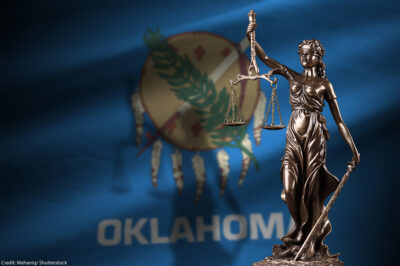Landmark Ruling Halts Unconstitutional Taxpayer Funding of NJ Yeshiva and Seminary After ACLU & Americans United Suit
Court rules that Christie administration’s $11 million+ grant to religious schools violated NJ Constitution
In a groundbreaking victory against government sponsorship of religion, a New Jersey appellate court ruled that the administration of Gov. Chris Christie violated the New Jersey Constitution when it awarded more than $11 million to two religious institutions of higher learning. This decision by the Appellate Division represents the first major state court precedent in almost 40 years concerning New Jersey’s prohibition on using taxpayer funding to support a religious ministry.
The ACLU of New Jersey, national ACLU, and Americans United for Separation of Church and State successfully challenged New Jersey’s grants of $10.6 million to Beth Medrash Govoha, an Orthodox Jewish yeshiva in Lakewood, and $645,323 to Princeton Theological Seminary, a Presbyterian seminary, both of which are dedicated to religious training and engage in discrimination. The yeshiva trains Orthodox Jewish rabbis, excludes women, and employs only male, Jewish faculty. The seminary “prepares women and men to serve Jesus Christ in ministries” and permits only Christians to be degree students or faculty.
“This is a victory for civil rights and a victory for New Jersey taxpayers, who should never have to subsidize institutions that discriminate or that exist to teach their particular religious doctrine,” said ACLU-NJ Legal Director Ed Barocas. “Everyone has a fundamental constitutional right to worship freely. At the same time, the government must respect the right of New Jersey taxpayers to know that their money will never be responsible for propping up particular sects’ religious ministries.”
The unconstitutional funding for the two schools has been on hold as a result of the legal challenge.
The New Jersey Constitution specifically forbids taxpayer funds from going toward the maintenance of a church or ministry, as the organizations argued before the court on April 11, 2016. This ruling sets the first New Jersey precedent regarding which religious institutions qualify as a “ministry.”
“New Jersey’s Constitution forbids giving state funding to divinity schools, and for very good reason,” said Alex J. Luchenitser, Americans United’s Associate Legal Director. “Tax dollars should go toward projects that benefit all the people of the state, not ones that aid only particular faiths.”
In April 2013, Beth Medrash Govoha and Princeton Theological Seminary stood out on a list the Christie administration released of 176 New Jersey colleges and universities set to receive funds for construction projects through a voter-approved bond sale. Both institutions train clergy, provide religious instruction, and engage in discrimination on the basis of religion or gender.
The lawsuit was filed on behalf of the ACLU-NJ, Unitarian Universalist Legislative Ministry of New Jersey, a former Hebrew school teacher, and two other New Jersey taxpayers.
“Today’s ruling sends a powerful reminder that the government shouldn’t be in the business of underwriting clergy training,” said Daniel Mach, Director of the ACLU Program on Freedom of Religion and Belief.
In the brief filed against Secretary of Higher Education Rochelle Hendricks, the plaintiffs cited three violations of the state Constitution, which prohibits using taxpayer funds:
• For the maintenance of any church or ministry
• To subsidize or build facilities at which religious services or instruction will take place
• To subsidize private interests rather than the public interest
Although the court based its ruling solely on the New Jersey Constitution and state precedent, the groups also argued that New Jersey’s Law Against Discrimination prohibits any place of public accommodation from discriminating based on religion or sex. While the yeshiva and seminary are private religious entities that are permitted to discriminate with their own resources, the state government cannot give special benefits that subsidize and support that discrimination.
“Although the court did not reach the plaintiff’s sex discrimination claim, its invalidation of the Christie administration’s $10.6 million grant to the yeshiva ensures that public dollars will not contribute to the exclusion of women,” said Galen Sherwin, Senior Staff Attorney at the ACLU Women’s Rights Project. “As a private religious institution, the yeshiva can limit its enrollment exclusively to men, but the state should play no role in supporting such discrimination.”
The New Jersey Secretary of Higher Education’s website identifies each school as a “theological institution.” The court’s decision ruled that in this case, there was no significant legal distinction between sectarian institutions of higher education and sectarian primary and secondary schools.
“Here, unlike other broad-based liberal arts colleges that received grants, both the Yeshiva and the Seminary are sectarian institutions. Their facilities funded by the Department’s grants indisputably will be used substantially if not exclusively for religious instruction. …
“We discern no principled distinction between the consumption of public resources that was invalidated under Article I, Paragraph 3 in Resnick and the payment of taxpayer-funded grants to the Yeshiva and the Seminary. The fact that most or many of the students at the Yeshiva and the Seminary do not eventually become ‘ministers,’ rabbis, or other clergy does not cure the constitutional infirmity, just as the fact that the adults and children who received religious instruction in Resnick were laypeople did not alter the Court’s analysis. Nor does the fact that the Department’s awards to these sectarian schools were part of a larger competitive grant process involving non-sectarian recipients solve the problem. The public school buildings in Resnick were also used by non-religious groups, but that did not eliminate the district’s constitutional violation in allowing religious groups to use them on a subsidized basis,” the opinion read.
The complete opinion (PDF) and filings in the case, captioned ACLU-NJ v. Hendricks, can be read online.
Stay Informed
Sign up to be the first to hear about how to take action.


